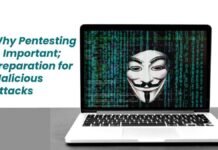There are several reasons to be cautious about the safety of your personal computer, and a Beginners Guide to Using VPN Protection Online is one of those reasons. As the cyber world continues to grow into larger and more sophisticated capabilities, the entire world has become vulnerable to attack from cyber criminals. They’ve learned how to hack into networks, access data, and disperse viruses among other things. In response to this new level of danger, there have been a number of different solutions that have been developed over the years.
One of these solutions is virtual private network, otherwise known as VPN. A VPN service, also known as virtual private network, is a way to create a secure tunneling system for data to flow between two or more Internet connections. It does this without the use of additional hardware such as routers and ports. Instead, it works entirely within the scope of a virtual private network. In short, when you connect to the Internet through a VPN, you’re effectively connecting to a secure “virtual” network which has been given the same security features as any other network.
One of the biggest advantages of using a virtual private network is the increased in security that comes along with using it. Because a VPN isn’t actually connected to any networks directly, many types of attacks are prevented. For example, a hacker can’t use a port to connect to your network directly; instead, the connection would go through a VPN and only reach your system if you’re using it. In addition, since you’re using a virtual network, you don’t have to worry about having to deal with any security vulnerabilities of your own.
And while there are many ways to get around the security offered by a VPN, some of the most common methods include hiding your identity behind a proxy server and downloading malware from websites. These methods are both very easy to do, and they provide no real security at all. However, a VPN offers a much better solution. Because a VPN hides your IP address and the location of your connection (and Internet connection speed), you’re much less likely to be targeted online.
Even if you’re not using a VPN, it’s important to think about how you use your computer these days. Most people log onto their computer at work using an Internet connection that’s either DSL or a cable service. When you work on your PC, this data travels over the Internet to a server, where it is stored. At home, your Internet goes out in the form of a wireless connection.
There are many reasons for why your computer might end up vulnerable online. Spyware is one type of software that can install itself on your PC without your knowledge. The name of the spyware is commonly referred to as malware, and it can do anything from slowing down your computer to stealing personal information. Malware can also infect your email account or the settings on your Windows operating system. Any of these things can make your computer less secure.
To make your computer more secure, you can set up a VPN. A VPN, or virtual private network, is simply a way for you to move your data between your computer and a separate, private network. This means that instead of using your computer’s Internet connection to get online, your computer will use the Internet settings on your router. Your Internet will only go to websites that are located on the private network.
The best way to set up a VPN is to find a company that offers this service. You probably won’t be able to find one that’s local to you because there are so many companies based far away. Instead, find a company that has servers maintained in different cities around the world. By using a company with multiple locations, you can connect to the VPN no matter where your computer is located.








